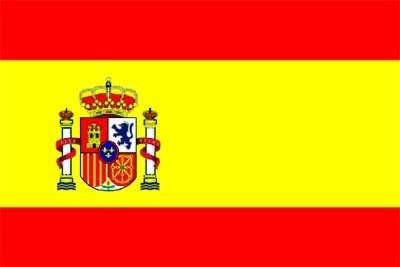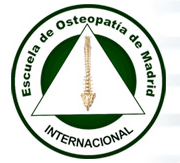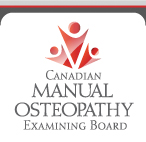Naturopathic Medicine offers diet, herbs, and lifestyle changes to naturally relieve the symptoms of menopause. In the past 20 years, more and more women have been learning about and choosing naturopathic remedies for menopause. This is understandable, since conventional medicine’s standard treatment for menopause since 1942 has been hormone replacement therapy (HRT) in the form of Premarin, a concentration of estrogens derived from the urine of pregnant horses. Research has shown that HRT has been linked to an increased risk of breast cancer, stroke, and blood clots; therefore, Naturopathic Medicine could be a safer form of treatment to manage menopause.
How Can Naturopathic Medicine Alleviate Symptoms of Menopause?
Whether a woman’s menopausal symptoms are mild or severe, Naturopathic Medicine provides a number of relief methods. Naturopathy aims to create balance in a woman’s body, specifically hormonal balance, which is the key disharmony during menopause. It can also relieve emotional imbalances and physical symptoms, and encourage the body to heal itself.
A naturopathic approach to treating menopause is a non-toxic, natural, and effective alternative to prescription drugs, which may carry potentially dangerous side effects. Naturopathic remedies to relieve menopausal symptoms include a diet rich in soy and dairy, herbal supplements such as red clover and black cohosh, vitamin and mineral supplements that include calcium and magnesium, and an exercise program that includes yoga.
Can Soy Treat all the Symptoms of Menopause?
Much has been written about soy, a so-called miracle food that contains phytoestrogen -- a compound derived from a plant that mimics estrogen. Phytochemicals can affect a woman’s hormonal imbalance. Studies have shown that isoflavones in soy produce a more rapid relief of symptoms during hot flashes, less severe symptoms during hot flashes, and a reduced number of hot flashes. Soy also decreases cholesterol levels, relieves headaches, improves energy, and relieves vaginal dryness and pain during intercourse.
Adequate amounts of soy can be consumed daily in common food products. There are many convenient soy products such as tofu, soy milk, miso, tempeh, protein bars, and “meats” such as those used in soy burgers and sandwich slices.
However, consuming soy will not cure all menopausal symptoms. One study showed that while 50% of women reported less severe hot flashes after using a phytoestrogen-rich soy supplement, so did 35% of women taking a placebo. Additionally, the soy supplements did nothing to reduce the frequency of the hot flashes. An adverse effect of consuming large amounts of soy phytoestrogens is that doing so may increase the risk of breast cancer by spurring the growth of breast cancer cells.
Naturopathic Herbal Supplements for Menopause
Several naturopathic herbal supplements are beneficial for treating symptoms during perimenopause and menopause. Red Clover (Trifolium pratense) contains isoflavones called lignans which are phytoestrogens. Studies have shown that 40 to 80 mg of red clover isoflavones per day can relieve hot flashes and night sweats and increase bone density. Possible side effects from red clover include headaches, nausea, rashes, and vaginal bleeding.
Black cohosh (Cimicifuga racemosa), native to North America, has been used to treat everything from kidney disorders to female problems. A placebo-controlled study of 80 menopausal women found that women taking the black cohosh experienced more relief from hot flashes than the placebo group. Black cohosh is also used for night sweats and mood changes. A typical dosage is between 20 mg and 40 mg per day. Black cohosh therapy is generally prescribed for only about six months, and rarely produces side effects.
Naturopathy Reduces the Risk of Osteoporosis during Menopause
Osteoporosis (or porous bones) is a dangerous condition caused by the decrease in hormones during menopause. It can lead to a hunched back, loss of height, and frequent fractures, especially in the hips. This condition can be treated with a naturopathic treatment of calcium and magnesium supplements. Calcium supplements in the form of calcium citrate, calcium lactate, or calcium gluconate are recommended to ensure proper absorption in the body. Dosage ranges from 1,000-1,500 mg per day, preferably in 500 mg implements throughout the day. Calcium-rich foods include Vitamin D-fortified dairy products, dark leafy greens, sardines, and tofu.
Magnesium is also important for strong bones. Magnesium is leeched out of bones if a person eats too much processed foods. When taking supplements, it is recommended to maintain a 2:1 ratio of calcium to magnesium. For example, if a woman takes 1,000 mg of calcium, she should also take 500 mg of magnesium. Magnesium-rich foods include seeds, nuts, whole grains, beans, and spinach.
General nutritional guidelines are always advisable during and post menopause. Women are recommended to eat a low-fat, low-cholesterol diet, avoid caffeine and alcohol, and not smoke in order to maintain good health.
Naturopathic Exercise and Yoga for Menopause
Exercise is good for everyone no matter what his or her stage in life. For menopausal women, naturopathic exercise releases hormones called endorphins to relieve stress and depression, improves cholesterol levels, and boosts energy. Aerobic exercise reduces belly fat and improves cardiovascular health; strength exercise builds bone mass and helps reduce fractures. Relaxation techniques, such as deep breathing and meditation, are also helpful.
Yoga is beneficial for women during menopause as it is said to regulate and balance the endocrine and hormonal systems. Yoga also oxygenates the blood, improves respiratory functions, and relieves pelvic congestion and headaches. The restorative power of yoga calms and soothes the practitioner while it makes the body more flexible. A yoga therapy session for menopausal women includes inversion positions, low back bending, side bends, and chest opening poses, all designed to balance hormone levels and reduce anxiety. An hour of yoga three times a week is highly beneficial.
What Is Naturopathic Medicine?
Naturopathic Medicine is the philosophy of treating illnesses of the body and mind through natural means, as a person takes control of his or her own self-healing. A holistic approach to healing, naturopathy strives to induce the body to activate its own healing properties by creating a balance among a person’s state of mind, emotional state, biochemical imbalances, hormonal level, and immune system.
While Western medicine’s dominant form of treating illness is through prescription drugs, naturopathy employs such techniques as diet and nutrition, herbs, exercise, meditation, detoxification, homeopathy, massage and Reiki, and traditional Eastern medicine. Naturopathy also aims to reduce the factors that may cause illness or disease, such as quitting smoking and other destructive behaviors.
What Are the Symptoms of Menopause?
Menopause is a natural condition that occurs in all women beginning in their late 40s and into their 50s. Menopause is triggered when the body produces less estrogen and progesterone; subsequently, the ovaries stop producing eggs, and menstruation slows and eventually ceases altogether. Side effects of hormone loss include hot flashes, night sweats, vaginal dryness, irritability, disrupted sleep patterns, and memory loss. More severe symptoms include vaginal infections and urinary tract infections, osteoporosis, and increased risk of heart disease.
Go to Content










 Master PCMH Criteria with Upcoming Webinars
Master PCMH Criteria with Upcoming Webinars







 The American Osteopathic Association (AOA) is the representative organization for the over 70,000 osteopathic physicians (DOs) and 18,000 osteopathic medical students in the United States. The organization promotes public health, encourages scientific research, serves as the primary certifying body...
The American Osteopathic Association (AOA) is the representative organization for the over 70,000 osteopathic physicians (DOs) and 18,000 osteopathic medical students in the United States. The organization promotes public health, encourages scientific research, serves as the primary certifying body...










 9:50
9:50
 Daniel Enriquez de Guevara
Daniel Enriquez de Guevara













.jpg)


















0 comentarios:
Publicar un comentario